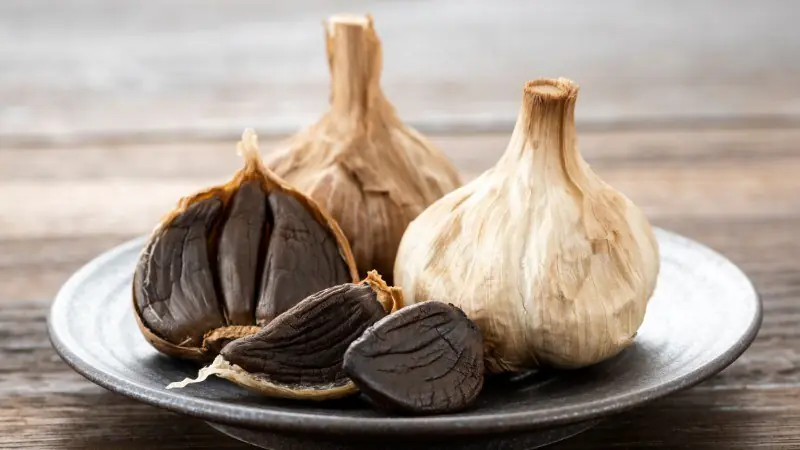
4 Anti-Inflammatory Protein Sources to Eat Regularly
4 Anti-Inflammatory Protein Sources to Eat Regularly
Mushrooms, beans, nuts, and fatty fish are rich in protein, vitamins, and minerals that help reduce inflammation and support overall health.

Understanding Inflammation
Inflammation is a natural response of the body to factors like microorganisms or autoimmune diseases. However, chronic inflammation can negatively affect overall health. An anti-inflammatory diet typically includes foods rich in vitamins, healthy fats, and protein. Here are four great protein sources that help combat inflammation.
1. Beans
Black beans, kidney beans, and white beans provide plant-based protein with anti-inflammatory benefits, making them a staple in vegan diets. They are also packed with antioxidants that help prevent cancer, heart disease, obesity, and diabetes. The fiber in beans promotes a healthy gut microbiome, reducing inflammation.
Lentils, in particular, are rich in polyphenols, plant compounds with antioxidant properties that help fight inflammation. Regularly eating beans can lower the risk of heart disease, diabetes, obesity, and cancer. Lentils also contain prebiotic fiber, which nourishes beneficial gut bacteria and supports healthy weight management.
2. Fatty Fish
Fish is an excellent source of protein that supports muscle health, skin, nails, and hair. Salmon, tuna, and mackerel provide omega-3 fatty acids, which have strong anti-inflammatory properties and improve cardiovascular function. Fish is also rich in vitamin D, selenium, and other nutrients with antioxidant benefits.
Nutrition experts recommend eating fish twice a week for optimal health. For those who don’t consume fish, plant-based sources of omega-3 include flaxseeds, chia seeds, and avocados.
3. Nuts
Like beans, nuts are packed with nutrients that help fight inflammation. Almonds and walnuts contain healthy unsaturated fats, vitamin E, selenium, copper, fiber, and antioxidants that protect against oxidative stress.
Nuts are also a great protein source, comparable to fish, eggs, or meat. For example, 28g of almonds (about 23 nuts) provide 6g of protein, equivalent to a large egg. Add your favorite nuts to salads, oatmeal, yogurt, or enjoy them as a snack to boost your protein intake.
4. Mushrooms
Mushrooms are a nutritious, plant-based protein source often favored in vegetarian diets. They contribute to muscle health and various bodily functions while providing essential vitamins B, C, D, E and minerals potassium and magnesium.
Mushrooms are rich in beta-glucans and antioxidants, which strengthen the immune system, reduce inflammation, and protect cells from damage. Oyster mushrooms and reishi mushrooms have been used in traditional medicine for their ability to prevent cancer, lower blood sugar, and support heart health. They also have antimicrobial properties and promote liver health.
Incorporating these protein-rich foods into your diet can help fight inflammation and boost overall well-being!
News in the same category


Age 46-55 is 'high ri.sk period in life': 10 signs in people prone to str.o.ke, 'early de.a.th'

Unusual changes in the body warn that the kidneys are weakening. You should not be subjective

Vegetables listed as can:cer - causing that many people still eat, should be stopped immediately

Do Women Have Only 400 Eggs in a Lifetime? The Truth Behind the Claim “Whoever Runs Out of Eggs First Ages First”

What happens to people who regularly eat sweet potatoes for breakfast over a long period of time?

The Health Hacks No One Told You About (But Your Body Has Been Begging For)

What is the nutritional difference between black garlic and regular garlic?

What really happens when you sleep with socks on?

Euphorbia Hirta (Asthma-plant): Traditional Uses and Applications

4 red flags your brain is in trouble as scientists warn Alzheimer's starts decades before you realize

Some people are only now realizing what the “WC” sign stands for on washrooms

Beware of dia.betes if you frequently experience these 5 strange symptoms

Doctor’s wa.rning: Stop eating these 4 foods immediately!

3 sleep-related abnormalities that may warn of an increased risk of cere.bral in.farction

Here’s why you keep waking up to pee in the middle of the night

Top 5 veggies to detox your arteries and prevent heart attacks!

If you drink lemon water every morning, this is what happens to your body

I truly am bothered by these!

This One Superfood Could Tackle Major Health Issues—Here’s What You Need To Know
News Post

Sudden confusion or difficulty speaking: when it’s more than just fatigue

Cherry Pistachio Cheesecake

Age 46-55 is 'high ri.sk period in life': 10 signs in people prone to str.o.ke, 'early de.a.th'

Unusual changes in the body warn that the kidneys are weakening. You should not be subjective

Vegetables listed as can:cer - causing that many people still eat, should be stopped immediately

Livestock and Veterinary Experts: 5 Ways to Identify Safe, High-Quality Pork and Distinguish It from Dise.ased or De.ad Pigs

Do Women Have Only 400 Eggs in a Lifetime? The Truth Behind the Claim “Whoever Runs Out of Eggs First Ages First”

Most people will go their entire life without ever knowing what the little arrow next to the gas gauge actually means

When a cat rubs against you - This is what it really means

While Silicon Valley Sleeps, Europe Is Rewriting the Rules of Tech

What happens to people who regularly eat sweet potatoes for breakfast over a long period of time?

The Health Hacks No One Told You About (But Your Body Has Been Begging For)

Banana Split Milkshake

What is the nutritional difference between black garlic and regular garlic?

What really happens when you sleep with socks on?

Euphorbia Hirta (Asthma-plant): Traditional Uses and Applications

4 red flags your brain is in trouble as scientists warn Alzheimer's starts decades before you realize

Some people are only now realizing what the “WC” sign stands for on washrooms

Beware of dia.betes if you frequently experience these 5 strange symptoms
